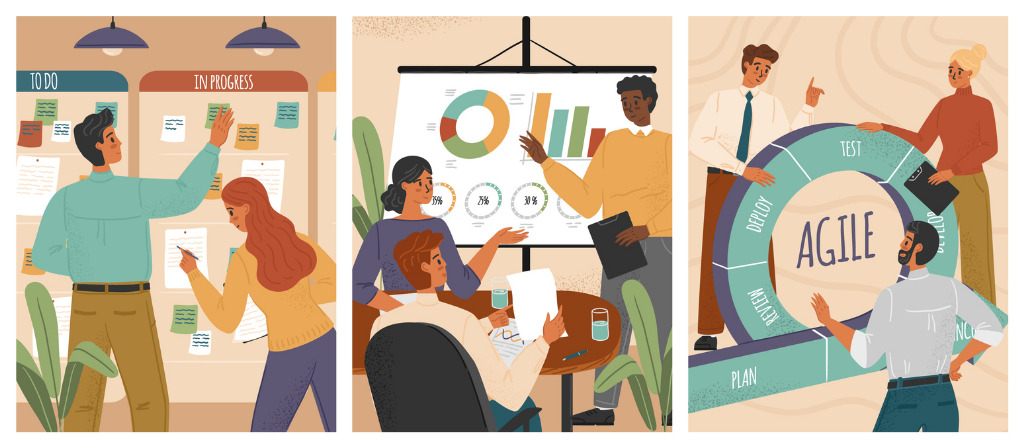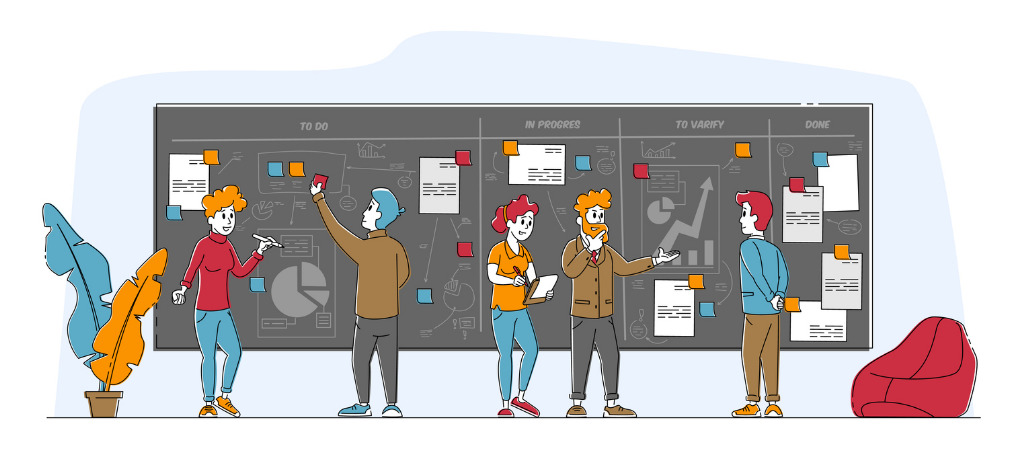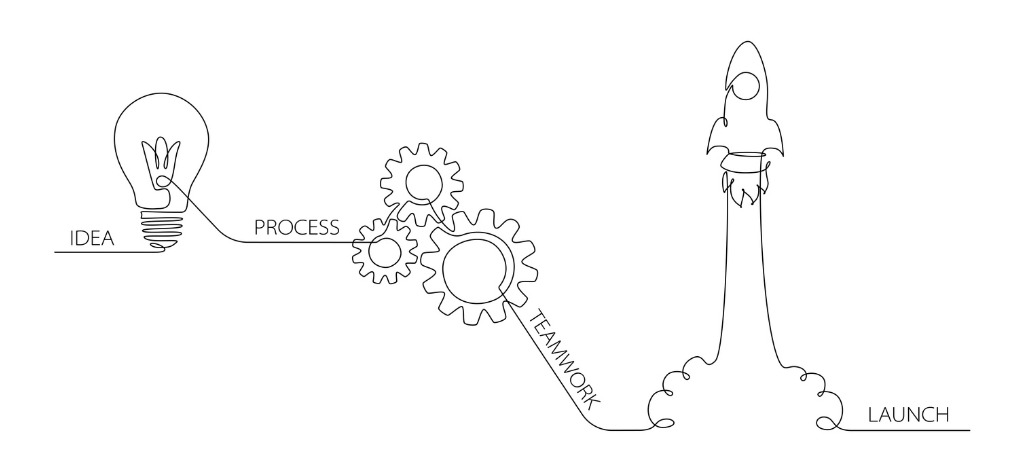Time and Material contract for Agile Software Development
When outsourcing software development, it’s natural to want to control costs as much as possible. Fixed price contracts and budgets set in stone might seem like the best ways to do that.
However, software development is most often an evolutionary process. Without a working crystal ball to accurately predict the project scope and duration of a project, a fixed-price contract is rarely your best option.
Even if you do think you know enough about the project, building an app from scratch means you will be devoting a lot of time to hammering out every detail at the beginning of a project. As such, companies attempting to cut their time to market with a minimum viable product (MVP) are penalizing themselves early on with an overly detailed scope of work.
Plus, once the plan is in motion, it’s very difficult to change direction without upsetting the strict pricing model. Deviating from the original scope of the fixed price model usually requires scrapping everything and starting back at square one. In short, every change in the development process will cost the company dearly, while also giving competitors a significant opportunity to beat them to the punch.
Time and materials contracts increase the flexibility of a project while ensuring development teams are paid fairly for their work. This article will go over why Time and Materials (T&M) contracts are the best way to keep development projects viable and relevant in changing market conditions.
Why Not Use a Fixed Price Contract?
Fixed price contracts are as inflexible as T&M contracts are flexible. Investing heavily in a detailed scope will delay your time to market, and any changes will mean revisiting the drawing board with more meetings, wasted documentation, and redrawing of contracts.
Team augmentation under a fixed-price contract introduces further challenges. The software vendor wants to maximize profits by using as few man-hours as possible.
On the other hand, the vendor is not as concerned about time to completion because they want the best quality product. Man-hours do not add to the project’s costs, so it’s difficult for developers and vendors to get on the same page under these conditions.
What are Time and Materials Contracts?
A time and materials contract is the opposite of the traditional fixed price contract. It’s based on the need for software projects to remain flexible. The volume of work, design changes, and implementation of new features are all within the realms of possibility with T&M contracts.
Developers are paid for the time in hours they spend on a project, negating the need to go back to the drawing board when the scope changes or new features need to be added. Strategies are free to evolve, and decisions can be made on the fly. These features make a T&M contract the perfect match for quickly getting a minimum viable product to market.
Time and Materials Contracts Increase Flexibility (Agile Development)
Time and materials contracts partner well with an agile process model. Agile development approaches break projects into iterations using small, autonomous teams not involved in long-term planning. Project scopes and requirements are determined at the start of the project, and each iteration is a “frame” of time, usually between one and four weeks.
The agile model in conjunction with a time and materials contract gives development teams the advantage of flexibility because it’s based on the premise that project requirements almost always change and evolve.
Agile development makes it relatively straightforward to add, remove, or improve features even in the more advanced stages of the project.
You can start with the basic core, or MVP, of the project. When you get the core components of a working product to market early and start earning revenue, you can adjust the requirements and key features as more information about what the market needs become available.
Naturally, agile projects are created in short sprints, starting with the MVP and then testing to ensure all business requirements are being met. Detailed progress reports and analyses verify the development team’s work.
Tracking outcomes at every stage enables development teams to add improvements and adjust their approach on the fly.
Time and Materials Contract: Getting it Right
A T&M contract will not eliminate all the risks and challenges you will face. Here’s how to make sure your project will stay on track when using a time and materials contract.
Choosing a Development Partner
Time and materials contracts using agile development processes require constant vigilance on workflow. When selecting remote engineers, you want expertise that matches the skills required for the project.
You should also know something about the team’s history in handling budgets, project scopes, communication channels, and how they track the progress and effectiveness of the project.
Selecting the right partner will be a key factor in the success of your project, so make sure you thoroughly review their track record, so you know you are working with a trustworthy team.
Create the Best Team for the Job
Whether your company possesses all the skills under one roof or offshore team augmentation hiring remote engineers is a component of your development strategy, building the best team for the job is critical to the success of the project.
Agile development projects work best with small teams because it helps to eliminate communication issues and documentation bottlenecks.
Develop Project Frames and Estimate Costs
Agile and time and materials contracts are the most efficient methods for software development, but you still need some idea of the scope and budget of the project. Frames provide project scope that remote engineers can use to estimate the number of sprints required and calculate an estimated cost.
Engage Regularly with Your Remote Engineers
Even with the best onsite developers and remote engineers, you will need to be involved with the project. Lack of communication has been the demise of many software projects, so regular meetings are critical.
Team augmentation using a remote workforce often means some of your development team will be offshore or live in different time zones. You will need to plan your communication strategy to accommodate the difference in working hours.
Manage Your Project with The Flexibility of T&M
Time and materials contracts allow developers and remote engineers to quickly get on the same page, with both parties working towards a quality product rather than a limited time and budget.
The increased requirement for detailed management may be time-consuming, but the development of a product that meets all expectations of the end users guarantees the continued viability of the project.
Are You Ready to Start Building your Project?
Are you searching for a reliable development partner who can augment your team with highly qualified remote engineers? Towa Software has tailored, affordable solutions and the right skills to get your software project off to a flying start.









